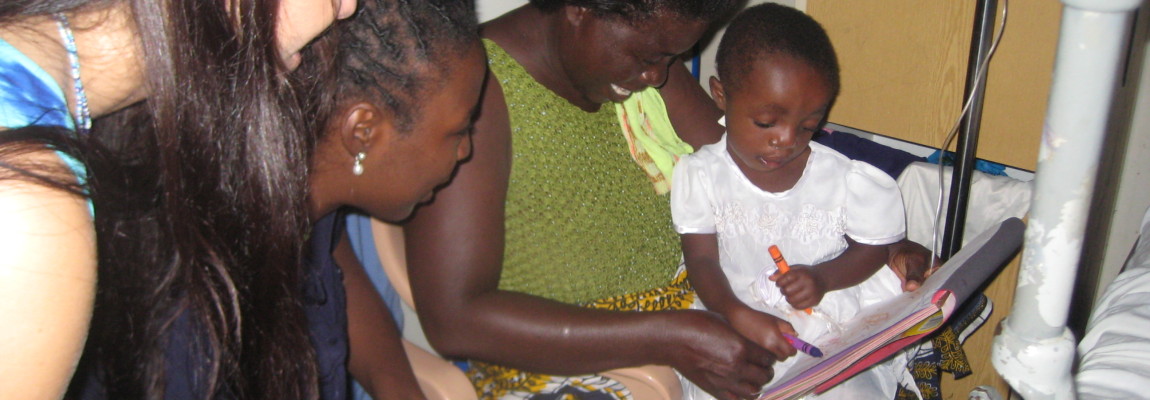
On May 20th, I embarked on a two week expedition to Ghana, Africa, working as the Chief Clinical Supervisor for 13 graduate students in the speech-language pathology program at Columbia University. There is so much to share about this amazing trip. Being in a country so different than the United States, yet realizing how similar these people and patients are.

I just wanted to share one particular story that truly touched me (there really are so many!). As we were taking a day off from clinical work on a Saturday, we were seeing some tourist sites. I had a conversation with one of the park rangers at the National Park in Mole, Ghana. He asked what we were doing in Ghana and I shared our work with him. He took a particular interest in cleft lip/palate, probing and asking more questions. We soon found out that he knew of a child in a neighboring village with cleft lip and palate, and he asked if we could see the baby.
On Sunday, we arrived in the small remote village, and the mother of the baby was not expecting us. Though still, she welcomed us inside her one-room home as she heard of our purpose. Her baby, Faruk, was 3-months old with a complete unilateral cleft lip. There is a large stigma in place, and often parents and people reject children with disabilities, or children that are just different. The father of the baby left the mother and his son after seeing him, and the mother was left alone to care for her son.
Embarrassed and unknowing, she moved in with a friend, and kept her son inside for the entire 3 months of his life. She shared her story, becoming emotional and looking helpless- and a bit malnourished herself, since she couldn’t work (and take the baby to work to have the rest of the village see him). We treated the baby, observed how he fed, using a bottle and breast feeding. We educated mom about how much the baby should be eating to maintain a healthy weight, and provided some strategies for safe and efficient feeding, which nearly instantly improved. We informed her of the Operation Smile and Smile Train teams, which were to arrive in a hospital 2 hours away, and helped her financially to assist in payment for transportation to the hospital (which was equivalent to $6 US each way, money she just did not have). The surgeons provide free repairs for cleft lip and palate.
After about an hour of working with this mother, in her home, and getting to know baby Faruk, we knew we had made an impact. As we were leaving, the mother proudly brought baby Faruk outside of the house, in the light of the day, for the first time. She held him facing out, as the rest of the villagers watched. We gave hugs and said our goodbyes.

This trip reinforces how important communication is between parents and children, and caregivers and their loved ones, world wide. The children are just as playful and fun, the parents are eager to learn and apply new tricks and techniques, and the professionals are always ready to collaborate. It was humbling to see first hand, how happy people are with the such little resources they have. And of the 50+ patients we worked with, we were able to establish a sustainable treatment plan for bettering communication and/or feeding and swallowing.
Interested in more pictures? Check out our facebook page.
Columbia University has partnered with several hospitals and schools throughout Ghana, and this marked the seventh visit to the country, as master’s level students educated other professionals, treated patients, and taught parents about all things related to speech, language, and feeding.
